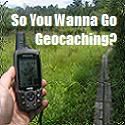Red Spotted Newt: A Favorite Critter to Come Across
We always consider it a "bonus" if we happen to come across one of these guys in our geocaching travels.
From Wikipedia: "Eastern newts dwell in wet forests with small lakes or ponds. They may coexist in an aquatic environment with fish, because their skin secretes a poisonous substance when the newt is threatened or injured. They have a lifespan of 12 to 15 years in the wild, and may grow to 5 inches in length. The newts are a common aquarium pet, being either collected from the wild or purchased. The strikingly colored (orange) juvenile stage, which is land-dwelling, is known as the "red eft".
We don't see them very often; we most recently saw one on the Appalichian Trail near Pawling, NY. The particular species we see is the Red Spotted Newt. They are easy to spot, in fact they kinda stick out like a sore thumb. I am astonished their lifespan is 12 to 15 years - I don't know how these guys manage to hide from their predators during their juvenile stage, being ya know, bright orange! They don't even have a protective shell or anything! :-O They're sooo cute though, whenever we are lucky enough to come across one we always stop to check him out, sometimes pick him up. Even DD will pick one up.
I never knew that when they are orange it is just their "juvenile stage" and that "after two or three years, the eft finds a pond and transforms into the aquatic adult. The adult's skin is olive green, but retains the eft's characteristic outlined red spots. It has a larger and wider tail and characteristically slimy skin."
I guess if the newt can survive the "orange years", once he gets to a pond he can breathe a sigh of relief! :-)
Anyway, if you are a geocacher in Eastern to Central United States hiking in an area of some wetlands, pond or lake, be on the lookout for the Red Spotted Newt.
Posted by Unknown at 11:10 PM
Labels: Seen on the Trail












1 comments:
They don't hide - their skin is poisoness! To ingest it would be lethal for any small animal. They're 2 - 4 1/2 inches long, and can be either aquatic or terrestrial.
Post a Comment